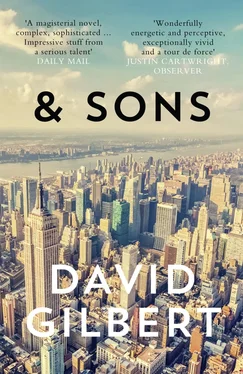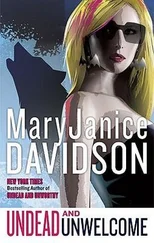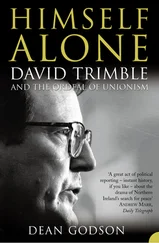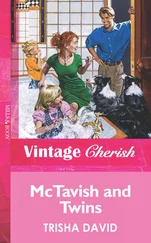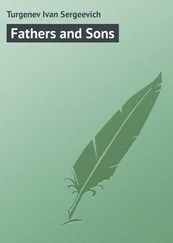“So so much.”
“Yes.”
“So proud to have you as a friend. So proud. Just plain proud of you.”
“And I he,” Andrew said, wondering if he was speaking English or Mandarin.
“And the boys, and Grace, they love you too, like a second father really.”
“Their father was a good man.”
“You have such a way with words. As a matter of fact …”
It was ridiculous, her flattery, or perhaps mockery since her lips often pursed the thinnest of smiles, passed down from a particular brand of suburban housewife who could appear both dense and all too wise, like any service industry veteran. Yet somehow by the end of the conversation the divorcée from Oyster Bay had nabbed her prized eulogist. A goddamn eulogy? What could be worse? Maybe a graduation speech. A wedding toast. Andrew had said yes despite the clearest of professional and private intentions, had said yes despite the fact that his last novel, The Spared Man , was published ten years ago and most of that was cribbed from something he had abandoned twenty years before—since then nothing new from the celebrated author of Ampersand and Here Live Angry Dogs and Brutal Men and a dozen other books, not even a letter of decent length. Sometimes it seemed a vital piece had gone loose in his brain and he could feel the bit rattling around, a temporal gear that had slipped its carriage and no longer stamped thoughts into proper words and sentences. He was, in effect, broken. Often he wanted to jam a screwdriver into his ear. Like last night, in his study: he was sitting at his desk distracted by the recent reissue of his books, with that stupid business on their spines (if arranged chronologically they revealed a red line that traced the peaks and valleys of a cardiogram), which, while clever enough, did not take into consideration the random heart conditions after midnight, the arrhythmias and shortnesses of breath and implied flatlines, the irrational fear of sleep, the old friend recently dead and only a few hours to sum up his life. Four-thirty in the morning and chest-deep in his own grave, Andrew reached for that most loathsome and inguinal of writing instruments, the laptop computer. He lowered himself into the underworld of the Internet. Almost as a lark he did a Google search (was he the only one who noticed in its logo a babyish connotation, a sort of infantile infinite?) for eulogy and help and please . Within an hour he found his Eurydice:
My dear friend,
I am here to offer you my very deepest sympathies for the loss you have recently suffered. In this time of grieving it can seem overwhelming to deliver an eulogy in front of an audience of friends and family and clergy and strangers let alone writing said eulogy with all the care it so obviously deserves and all in a matter of a few fraught days. What can you give but tears? Believe me I know what you are going through. I myself was beyond bereft and scared when my brother-in-law asked me to give the eulogy for my much loved but tragically deceased sister and while I was afraid I might not do the lovely part of her life justice I preserved and there were such good feeling and warmth for my words that since then I have written and delivered eulogies for my father, my cousin, my uncle, two of my aunts, my grandmother, countless dear friends, even poor newborns abandoned I have remembered. If you want to skyrocket your confidence and save precious time and rest assured in delivering a memorable tribute to someone who once meant so much to you, then www.eulogiesfromtheheart.com is the most important website you will visit today. My Instant Eulogy Package will give you everything you need to stand tall with appropriate and meaningful sorrow. Let me help bring forth the loss that is struggling within you.
Sincerely and again with deepest condolences,
Emma Norbert
Yes, Andrew thought, Emma Norbert understood. Her photo was front and center, her face soft with the sweetest kind of intelligence, even if the eyes were punctuated with too much makeup, like unnecessary quotation marks. But you could tell she was an honest if dyslexic mourner. Emma had the real words while all Andrew had was artifice. Drunk with scotch and swirled with Vicodin, he considered the fourteen books that would stand as his testament, a handful of older critics giving their kind words, a handful of younger critics challenging such weary opinions. Oh Emma, Andrew thought, what would you say about me for $29.99? He plugged in his information, his credit card number, then pushed ENTER. In five minutes he had his choice of fill-in-the-blank eulogies.
They say that at the end of our time on this earth if you can count a few good friends you are a fortunate person. I know that I am fortunate because I could always count on [insert name]to be the truest friend I ever did know, and today I am sick with despair, doubly sick because [insert name]is not here to repair me with his/her kind words and loving heart …
Andrew clapped his hands, maybe even cackled. The idea that he or Charlie could repair anything was laughable. Their mothers, and then their wives, did all the repair work, often literally, while their sons, and later their husbands, bungled even the easiest of household chores and came to depend on a general air of domestic incompetence for a sense of well-being. They were hopeless without their women. Andrew rolled a sheet of paper into the Selectric, always a satisfying action, like adding memory to an empty head. As he copied the words he allowed himself a brief fantasy with Ms. Norbert, Emma in leather and high heels, pushing his face down and riding him like a run-on sentence. Nothing rose from her whip but there was some solace in the harsh slap of keys.
I just hope I was half the friend that [insert name]was to me, and in the end, when my time is up, God willing I will once again find myself with him/her and we can (a favorite shared activity) again. The sun might set, but there is always the promise of a new day, always the promise, always.
But in the gloom of this day Emma floated like stone. Andrew slipped the eulogy back into his suit jacket and bunkered himself farther into the pew, hoping perhaps that old Miss Moo would forget to call on him. He wondered about Andy—he had escaped outside for a quick smoke but that was four or five cigarettes ago. Then again, what did twenty minutes mean to a seventeen-year-old? Or an hour? Even a year? All that future ahead was a bright light shining under the door, the present just a narrow peephole. Still, Andrew wished he could reach over and touch the boy’s knee and maybe settle himself with a self-confirming glance. Andy was the answer to that late-night question: Am I alone? No. You have him. But where was he? Andrew thought about turning around and looking but the idea of wading through the collected crowd, the various social connections, the past that grew thin but never snapped, if anything grew more elastic, exhausted him. It was a history he couldn’t deny. Like an Appalachian boy who done good, the entire Upper East Side had embraced his early success, even if his novels tended toward the Upper West, with friends of his mother and stepfather praising the reviews and magazine articles and asking about sales and potential awards and if Darryl Zanuck had come calling yet, these same hands congratulating him decades later when he ripped them apart in the Henry Doubleday diptych ( American Ligature and The Gorgon USA ), but by then there was no cause for outrage. A. N. Dyer was famous. Andrew cleared the ever-prolific phlegm from his throat, a thirty-second job nowadays. Yes, the pews behind him carried the junk DNA of his life, useless perhaps but within their folds he might glimpse his mother, long a ghost, making her giddy rounds and he might overhear a kind word said about his father, who died the day after Christmas when Andrew was just eight. But rather than turn he continued to peer ahead, disoriented, like somebody mistaking a mirror for a way out.
Читать дальше
